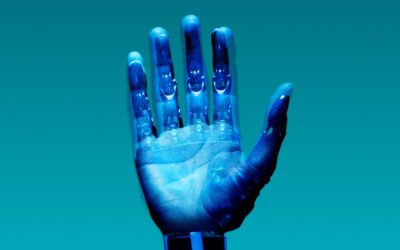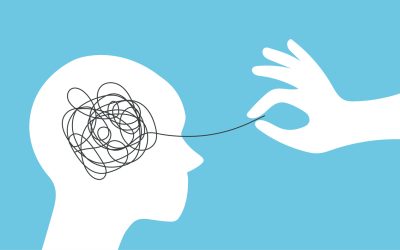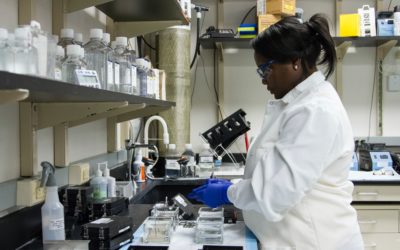Translation services blog
The Impact of Localization on Customer Experience
In today's global market, customer experience is more crucial than ever. Speaking your customer's language goes beyond mere words. It's about cultural connection, understanding local nuances, and ensuring your message resonates authentically. The transformative power...
The Role of Cultural Competence in Business Success
In today’s global market, engaging with diverse cultures effectively is crucial for business success. Cultural competence impacts communication, relationships, and brand reputation. Understanding and respecting cultural differences helps businesses build strong...
Building Trust in International Partnerships
In today's global marketplace, trust is the cornerstone of successful international partnerships. Clear and accurate communication is crucial in fostering and maintaining trust across borders. Specialized Language Solutions In the life sciences industry, precise...
Transcreation: Beyond Translation
In the realm of language services, there's a crucial distinction between translation and transcreation. While translation involves converting text from one language to another, transcreation goes a step further, adapting content to resonate with a specific audience's...
Navigating Multilingual Web Content Management with Advanced Technology and Deep Expertise
In today's global market, managing web content across various languages is essential for engaging international audiences. At KONTEKST, we combine over two decades of language services expertise with the latest technology to master the complexities of multilingual web...
Safeguarding Confidentiality in Machine Translation: Key Considerations
In sectors such as clinical research, healthcare, and law, safeguarding the confidentiality of sensitive information is paramount. These fields handle highly confidential data, ranging from patient health records and clinical trial results to legal documents and...
The Benefits of Using E-Learning Platforms in Your Company
In today's digital age, e-learning platforms have become a cornerstone of effective employee training and development. Leveraging these platforms offers numerous advantages that can significantly enhance your team's skills, knowledge, and overall productivity. One...
The Key Role of Language and Appropriate Translations in Pediatric Patient Care
Pediatric patient care abounds in unique challenges that doctors treating adults do not face on a daily basis. One of the biggest problems is the communication barrier. Given the stages of a child’s development, the youngest patients are completely non-verbal, and...
More Than Words – Translating Graphics in Scientific Texts
Our world abounds in diversity. We have already learned much of it, but still a lot more remains to be discovered. Scientists continue to explore extinct species, black matter, nanoparticles or sub-cellular processes, but how do they convey the knowledge they have...
Are e-Mental Health Services tomorrow’s way of fighting depression?
Recent years have seen a surge in media coverage of topics related to mental health. Mental illness is no longer considered taboo and people living with it are opening up about their problems, without fear of experiencing social stigma. This mindset shift, coupled...
Increasing the level of health literacy in the society as one of the main goals of the “Healthy People 2030” initiative – what role does language play in this process?
What is health literacy? The term “personal health literacy” was coined in 1970 and now denotes the degree to which individuals have the ability to find, understand and use health-related information to make informed decisions or take action. People with low health...
Challenges and solutions for language services in pharmaceutical practice
We live in an age where it is not unusual to see a brother, sister or classmate to move to another country or even to another continent. Due to the Russian invasion, many countries have accepted refugees from Ukraine, and after the pandemic, more and more people work...
Translation Services for Ukrainian and Russian
In recent times, the global landscape has undergone changes that have led many clients to reconsider their operations in Russia. While the world adapts, your business should not have to compromise when it comes to efficient and reliable language solutions. Here's why...
The impact of digitization on pharmaceutical practice
Pharmacies are a very important component in the structure of health systems, and their qualified employees have much broader competence than only dispensing medicines recommended by doctors. Pharmacists are able to advise patients on drug regimens and can offer...
Enhancing Clinical Trials Through Informative Videos: Transforming the Patient Experience
In the ever-evolving landscape of pharmaceuticals and clinical research, improving the patient experience remains a critical priority. From the moment patients embark on their clinical trial journey, it is essential to ensure they are well-informed, engaged, and...
From the concept of one drug to one health initiative – when human and veterinary medicine are on the same team
The concept of one medicine was invented by Calvin Schwabe in the 20th century. Its underlying assumption is that if humans are able to cure a disease in a particular species, the knowledge obtained from research studies should also be used to help other species....
Clinical Trial Protocol – a Real Challenge for Translators
The protocol is a key document for every clinical trial. It is fundamental to the entire research project, defines the objective and describes the design of the study as well as details of the applied methodology and methods of statistical analysis. It provides...
Why is the process of translating regulatory submissions so unique?
Translation of regulatory submissions is often perceived as a necessary evil by clinical trial management teams, because it involves considerable financial outlays. Therefore, persons responsible for regulatory submissions are usually under a lot of pressure. Despite...
Patient-reported outcomes (PRO) – challenges in the translation process in light of regulatory agencies’ requirements
Different language versions of study-related materials rate among the basic tools used to increase patient diversity in clinical trials. They are of particular importance because language barriers may prevent information about a conducted study from reaching potential...
“Plain language summary” – INCREASING ACCESSIBILITY OF INFORMATION ON RESEARCH INVESTIGATION
For everybody involved in the medical industry it is obvious that in order to speed up the development of new medicines, efforts should be made to involve the society, particularly patients, in this process to a bigger extent. In order to achieve this goal, the...
Translational research – how does it differ from clinical research and how important is it for society?
Following the recent pandemic, clinical trials became the ‘buzz word’ not only in the medical community, but also in society in general. Consequently, the definition of a clinical trial is now widely known: in short, it is any trial conducted in humans in order to...
Training Challenges of Global Pharmaceutical Companies and CROs
The SARS-CoV-2 pandemic in 2020 was undoubtedly a hard hit for people around the world. It also caused a huge stir in the corporate community, forcing it to quickly adapt to remote working arrangements. When it comes to setting up intercontinental teams within global...
Ways to improve content management in your company
In today’s era of remote work, managing content and information flow is a challenge in many organizations because of factors including: multitude of formats and platforms in daily use, distributed teams working on the same project, extensive workflows, hybrid document...
The role and importance of inclusive language in patient-facing materials
In a brochure issued by the Council of the European Union it is stated that inclusive, bias-free language avoids stereotypes and references to irrelevant details. It acknowledges positive qualities in people of all genders and sexual orientations, persons with...























